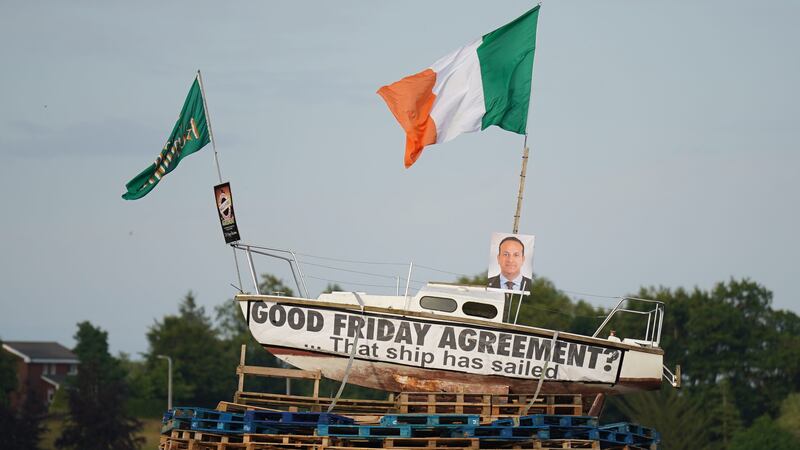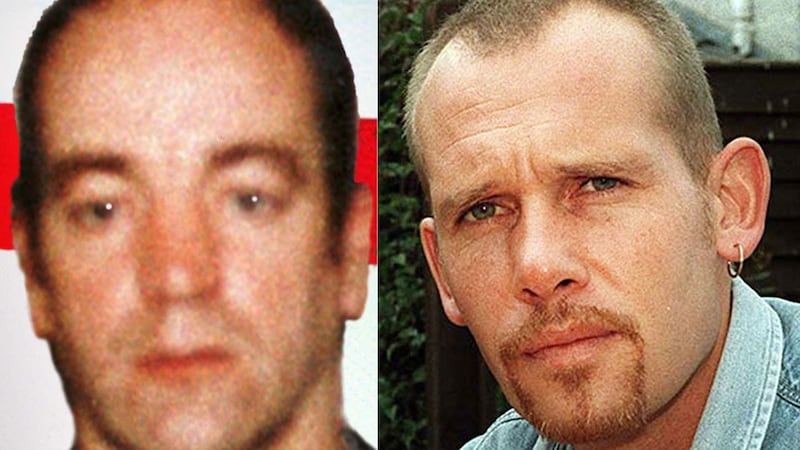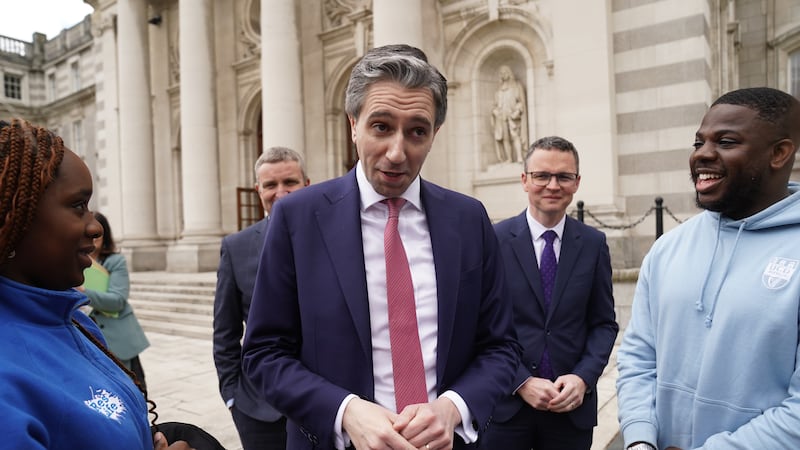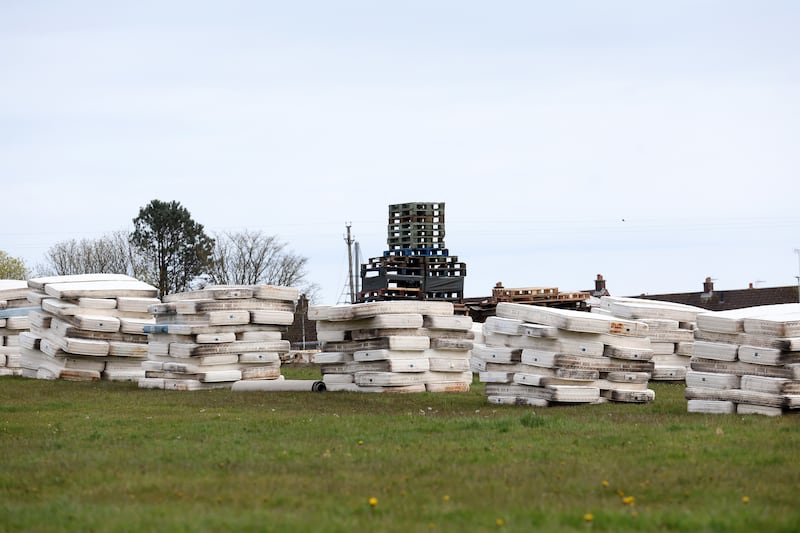DUP leader Sir Jeffrey Donaldson has said he believes the overwhelming majority of unionists oppose the placing of an Irish flag and a picture of Taoiseach Leo Varadkar on a loyalist bonfire.
Police are investigating the incident at the bonfire in Co Tyrone at the weekend as a “hate crime”.
The towering pyre in Moygashel, themed as an anti-Northern Ireland Protocol bonfire, attracted attention online after a boat was placed on the top of it.
By Saturday evening, an Irish tricolour and a republican flag, as well as a picture of Mr Varadkar, had been added on the boat.
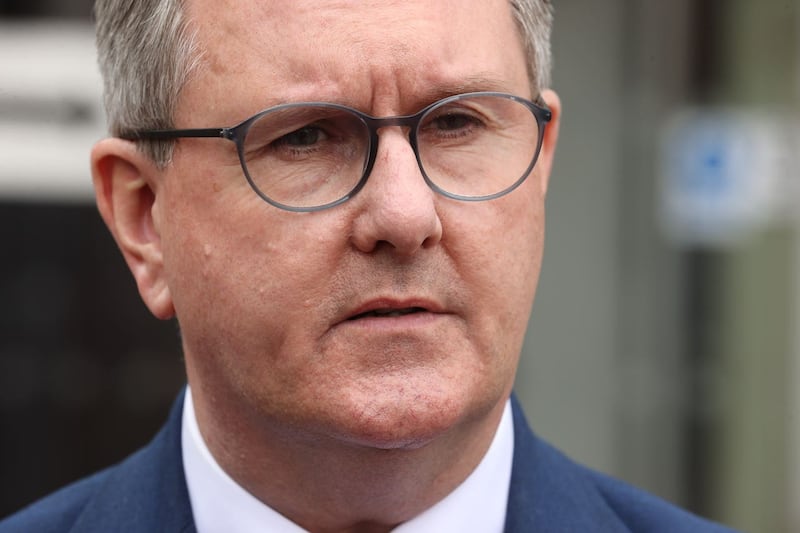
Sir Jeffrey said the actions were wrong, regardless of opinions on the protocol.
“I think that what happened in burning the flag of our neighbouring state and burning the poster of Leo Varadkar was wrong,” he told RTE.
“It is disrespectful. If people want to earn respect and have respect for their own identity and culture then they have got to show respect for others and I don’t think that what happened and these things that were burned on the bonfire are right.
“I think that is the view of the overwhelming majority of unionists.”
Sir Jeffrey added: “I know there are differing views on the Northern Ireland Protocol and its impact on community relations and on the politics of Northern Ireland, I have spoken myself about that.
“I believe that the protocol undermines some of the principles at the heart of the Belfast agreement but I am working alongside my political colleagues to address and resolve those issues.
“We recognise at the end of the day that Northern Ireland prospers when there is political stability.
“I think the overwhelming majority of people want to see forward movement. We have got to resolve the issues which are at the heart of the current political situation.”
Asked if bonfires should ever have effigies or flags placed upon them, Sir Jeffrey said: “Personally, I don’t think they should. Perhaps some may in a historical context, but this is not a historical context.”
“To do things that I believe are disrespectful to others and are not set in a historical context, I think that is wrong.”
On the side of the boat on the bonfire, a banner reading “Good Friday Agreement? That ship has sailed” was attached, with a mock copy of the 1998 accord across which the words “null and void” were printed.
It was given the title No Irish Sea Border Bonfire, in reference to opposition in unionist and loyalist communities to post-Brexit trading arrangements.
Most of the bonfires to mark Northern Ireland’s traditional July 12 celebrations will be lit on July 11.
The Twelfth marks the victory of Protestant King William of Orange over Catholic King James II in the Battle of the Boyne in 1690, an act that secured a Protestant line of succession for the British crown.
There has been controversy around bonfires in previous years, with election posters and Irish flags hung from the stacks of wood, with some towering more than 100ft high.
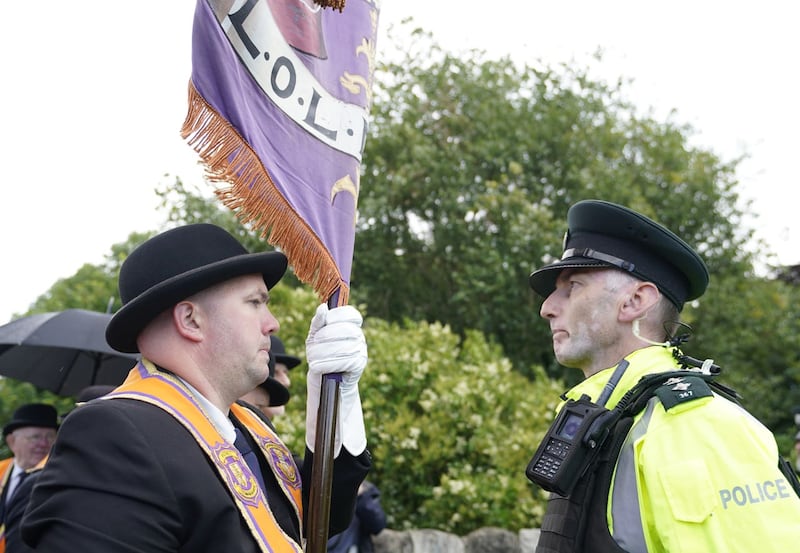
The DUP leader also rejected suggestions that there was any prospect of violence following an annual protest staged by the Orange Order at Drumcree in Portadown.
The Parades Commission refused permission for the order’s return route to proceed along the mainly nationalist Garvaghy Road, a ruling maintained since 1998.
Orange Order members on Sunday held a short protest at the police lines barring them from the return route.
Sir Jeffrey said: “We will always work to avoid situations becoming violent, I don’t think there is any prospect of that happening in this situation.
“No-one is talking about violence in relation to Drumcree and the Orangemen yesterday had their church service, they did so respectfully, they did so peacefully, they are seeking to exercise what they believe is their democratic right to peaceful assembly.”
